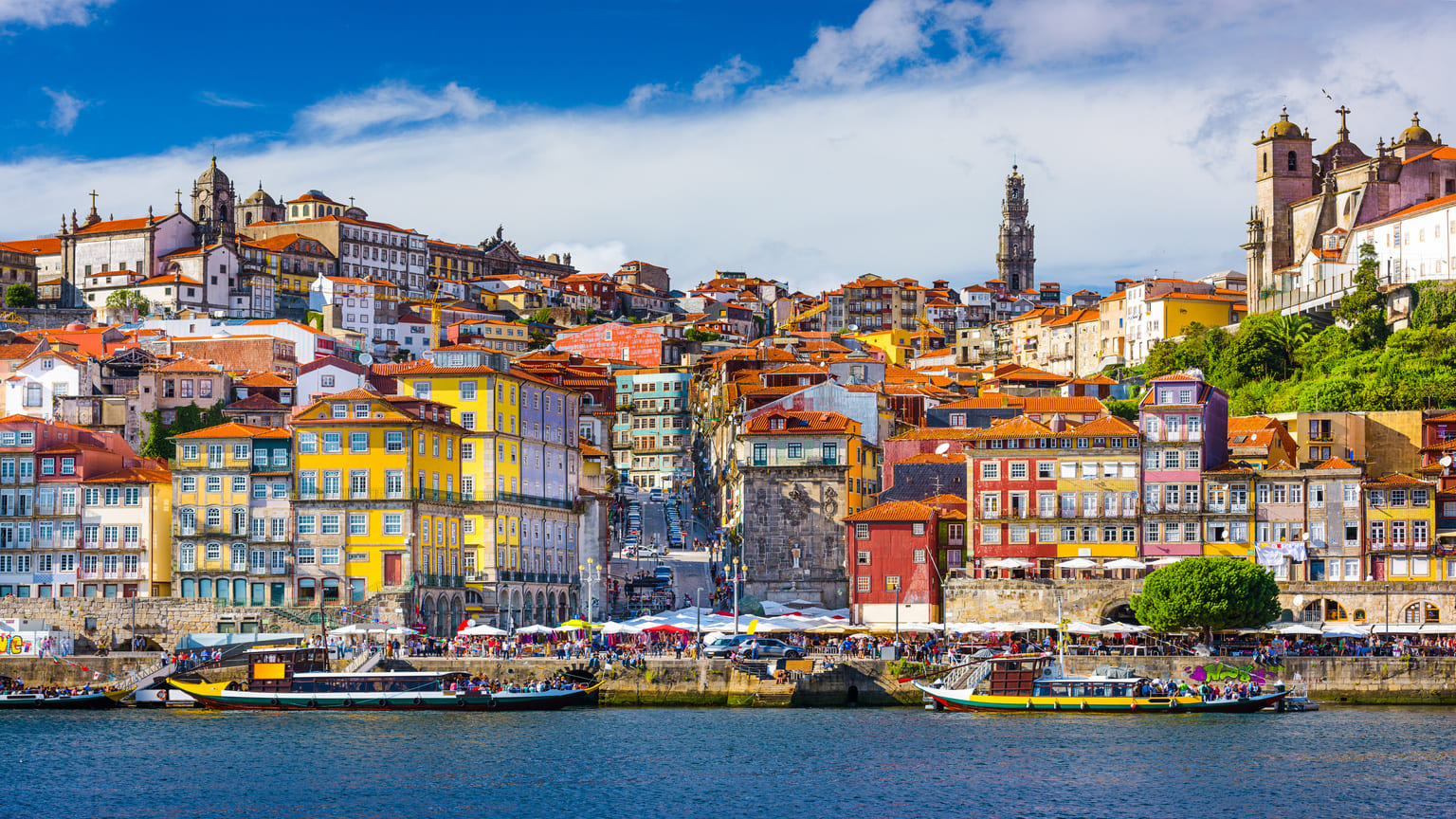Portugal Is Not Cheap! Reasons Not To Move To Portugal
Explore the key reasons not to move to Portugal, including challenges such as the high cost of living, housing market difficulties, work culture issues, and more, offering a comprehensive overview for potential expatriates.
Jane RestureJan 23, 20241810 Shares34144 Views

Portugal, often portrayed as a European paradise akin to the "New California," is experiencing a wave of reality checks. The allure of affordable living and picturesque landscapes is increasingly being contested by the realities of rising living costs, housing crises, and cultural shifts.
This in-depth exploration aims to provide a comprehensive understanding of contemporary life in Portugal. So why shouldn't you move to Portugal? What are some reasons not to move to Portugal? Let's discuss it!
17 Reasons Not To Move To Portugal
Portugal's charm, which has attracted a significant influx of expatriates, particularly Americans, is undergoing a critical reassessment. YakPersonal9246, a Portuguese native now residing in Ireland, voices a concern echoed by many locals: the portrayal of Portugal as an affordable haven is far from accurate. The popularity among foreigners has driven up living costs, particularly in urban centers like Lisbon and Porto, mirroring what happened in Costa Rica with its own expatriate boom.
1. Urban Cost Of Living
In Lisbon and Porto, the cost of living has surged, primarily due to the influx of foreigners. Rental prices have skyrocketed, with a 1-bedroom apartment in downtown Lisbon now costing around €1,800 per month, excluding utilities. This increase has placed a significant burden on local residents, many of whom struggle to afford these rising costs.
2. Housing Market In Crisis
The Portuguese housing market, especially in its major cities, is facing severe challenges. The government's decision to end "gold visas" is a direct response to the housing affordability crisis, which has disproportionately affected locals. The high demand from foreign investors and expatriates has led to a shortage of affordable housing, pushing many locals out of the market.
3. Portugal's Colonial Legacy
Portugal's colonial past, marked by the Treaty of Tordesillas and centuries of maritime dominance, continues to impact its modern-day society. This historical legacy influences how the Portuguese perceive their identity and interact with foreigners. Feelings of "saudade" for a past era of wealth and global influence mingle with contemporary societal dynamics, shaping the nation's character.
4. Daily Challenges In Lisbon
Life in Lisbon, despite its apparent charm, is fraught with challenges. Public urination, inefficient waste management, and a strained public transportation system frequently disrupt the city's quality of life. The metro, while a crucial mode of transportation, struggles with issues like overcrowding and strikes, particularly during peak tourist seasons and summer months.
5. Work Culture And Bureaucracy
The Portuguese work culture, characterized by a seemingly relaxed approach, often hides underlying stressors. Expatriates from more structured work environments might find the local professional culture and bureaucratic systems frustrating. This clash of work cultures can lead to professional dissatisfaction and stress, complicating the adjustment process for new residents.
6. Cultural Integration
Integrating into Portuguese society involves overcoming language barriers and adapting to local customs and lifestyles. Portugal's rich cultural history and geographic position have created a complex societal fabric that can be both vibrant and challenging for newcomers. Successfully navigating these cultural nuances is essential for a smooth transition into Portuguese life.
7. The Cost Of Living
Contrary to the popular belief of Portugal's affordability, the cost of living in urban areas has increased significantly. Essentials such as housing, transportation, utilities, and even mobile data are more expensive than in many other European countries. For example, an unlimited data package in Portugal can cost between €30 and €40 a month, a stark contrast to prices in countries like the Netherlands.
8. Climate Change
Portugal's climate, one of its main attractions, is not immune to global climate change. The country faces extreme weather conditions, ranging from intense heatwaves to unexpected cold spells and significant rainfall. These environmental changes affect daily life and have broader implications for sectors like agriculture and tourism.
9. The Myth Of A Relaxed Lifestyle
The perception of Portugal as a relaxed, easy-going country contrasts with the realities of its work culture and public services. The Portuguese approach to life, characterized by a slower pace, can be challenging for expatriates used to more efficient and time-sensitive environments. This cultural difference often extends to the workplace and interactions with public services, where processes can be slow and cumbersome.
10. The Housing Market
Property prices in Portugal have been rising since 2014, with some areas experiencing a 10% increase between 2020 and 2021. This growth in property prices is mainly due to strong demand and a housing shortage, particularly in Lisbon. The competitive housing market makes it difficult for individuals earning average or minimum wages to purchase homes. Negotiation in the real estate market is possible, but the margin for negotiation is becoming increasingly limited.
11. The Challenges Of Rental Agreements
The rental market in Portugal is fraught with challenges, including a lack of official rental contracts. Many landlords prefer not to declare their rental income, leading to a situation where tenants, especially foreigners, are left without legal protection against rent increases. This issue is particularly problematic for expatriates who need a rental contract for residency purposes.
12. Bureaucracy And Waiting Times
The relaxed pace of life in Portugal often translates into lengthy bureaucratic processes and long waiting times, especially in public services. This can be a source of frustration for expatriates who are accustomed to more efficient systems. Tasks that might be straightforward in other countries can become protracted affairs in Portugal, adding to the challenges of settling in.
13. Air Conditioning And Heating
Unlike many American homes, most houses in Portugal do not come equipped with air conditioning. This can be a significant discomfort during the hot summer months, when temperatures can soar above 40 degrees Celsius. Similarly, many homes, particularly older ones, lack central heating, posing challenges during colder periods.
14. The Work Culture
The work culture in Portugal can be a source of contention for expatriates. While companies are often lenient with punctuality, employees tend to work long hours, frequently extending beyond the typical 40-hour workweek. This expectation of extended work hours can lead to a loss of work-life balance and contribute to burnout among employees.
15. The Importance Of Language
For long-term stays in Portugal, learning Portuguese is essential. While English is widely spoken in major cities like Lisbon and Porto, this is not the case in more rural areas. Not speaking Portuguese can lead to challenges in daily interactions and may even result in being charged more for services.
16. The Cost Of Phone Data
Portugal's cost of living extends to services like phone data. Compared to other European countries, phone data in Portugal is expensive, with limited data packages being the norm due to high costs. This is a stark contrast to countries with more affordable data plans and can be a surprise for new residents used to unlimited data at lower prices.
17. The Work Environment
Portugal has the highest rate of employee burnout in Europe, with a significant portion of the workforce reporting risk factors affecting mental well-being at work. The long working hours and the high pressure of the work environment contribute to this issue, highlighting the need for a more balanced approach to work-life in Portugal.
Portugal, with its diverse landscapes, rich history, and cultural vibrancy, offers a unique living experience. However, the realities of high living costs, housing challenges, work culture, bureaucratic inefficiencies, and environmental concerns present a more complex picture. Potential expatriates and digital nomads must weigh these factors carefully against the country's undeniable allure, ensuring a well-informed decision about relocating to or living in Portugal.
Reasons Not To Move To Portugal FAQs
Is The Cost Of Living In Portugal Really That High?
Yes, particularly in cities like Lisbon and Porto, the cost of living has surged due to the influx of expatriates. Housing, utilities, and general expenses have become increasingly expensive, posing challenges for both locals and new residents.
How Does The Housing Market Affect Decisions To Move To Portugal?
The housing market in Portugal, especially in major urban areas, is strained by high demand and limited affordable options. Expatriates and locals alike face challenges in finding reasonably priced accommodation, with rental and purchase prices significantly higher than in the past.
What Are The Downsides Of Portugal’s Work Culture?
Portugal's work culture is often characterized by long working hours and a high incidence of employee burnout, especially in comparison to other European countries. This can lead to a stressful work environment and a lack of work-life balance.
Are Language Barriers A Significant Issue In Portugal?
For long-term stays, not knowing Portuguese can be a considerable barrier. While English is widely spoken in major cities, this is not the case in more rural areas. Language barriers can complicate everyday interactions and official procedures.
How Does Bureaucracy Impact Life In Portugal?
Portugal's bureaucratic system can be slow and cumbersome, leading to frustrating delays in simple administrative tasks. This can be particularly challenging for expatriates used to more efficient processes.
What Should I Know About The Public Transportation System In Portugal?
Portugal’s public transportation system, particularly in Lisbon, can be inefficient with issues like overcrowding and frequent strikes. This can make commuting and traveling within cities challenging, especially during peak hours or tourist seasons.
Can The Portuguese Climate Be A Downside?
Yes, particularly as Portugal faces extreme weather due to climate change. Summers can be excessively hot, and some homes lack adequate air conditioning, while winters can be unexpectedly cold, with many houses not having central heating.
Is Portugal’s Healthcare System Efficient For Expatriates?
While Portugal has a universal healthcare system, expatriates may face challenges such as long waiting times for treatments and a shortage of English-speaking medical professionals, especially outside major urban areas.
How Does The Rising Cost Of Utilities Impact Living In Portugal?
The cost of utilities like electricity, water, and internet is relatively high in Portugal compared to other European countries. This increase in utility costs adds to the overall living expenses, making it more challenging to maintain a budget-friendly lifestyle.
What About Social Integration In Portugal?
Social integration in Portugal can be challenging, especially for those who do not speak Portuguese. Cultural differences, combined with language barriers, can make it difficult for expatriates to fully integrate into Portuguese society and establish a social network.
Conclusion
In conclusion, while Portugal offers a rich cultural heritage and beautiful landscapes, there are significant reasons not to move to Portugal that potential expatriates should carefully consider. These include the high cost of living in urban areas, the challenging housing market, the demanding work culture, language barriers, bureaucratic inefficiencies, issues with public transportation, the impacts of climate change, the nuances of the healthcare system, rising utility costs, and difficulties in social integration.
Understanding these factors is crucial for anyone contemplating a move to Portugal, ensuring a well-informed decision that aligns with their expectations and lifestyle preferences. While Portugal has its charms, it's essential to weigh these against the practical realities of everyday life in the country.
Latest Articles
Popular Articles

